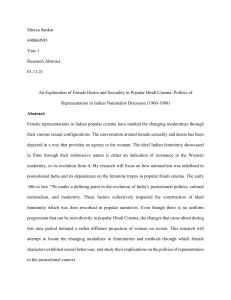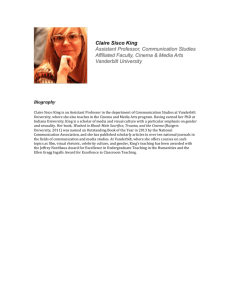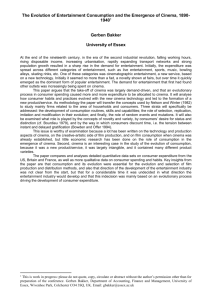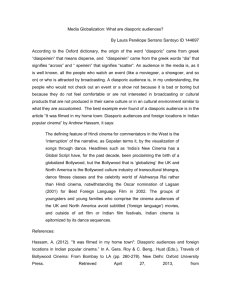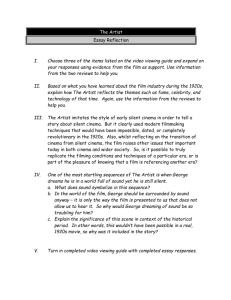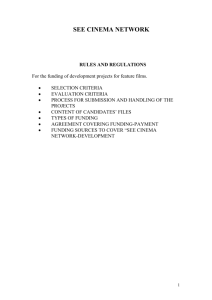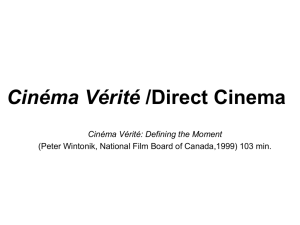Understanding World Cinema in the Age of Network Cultures: The
advertisement
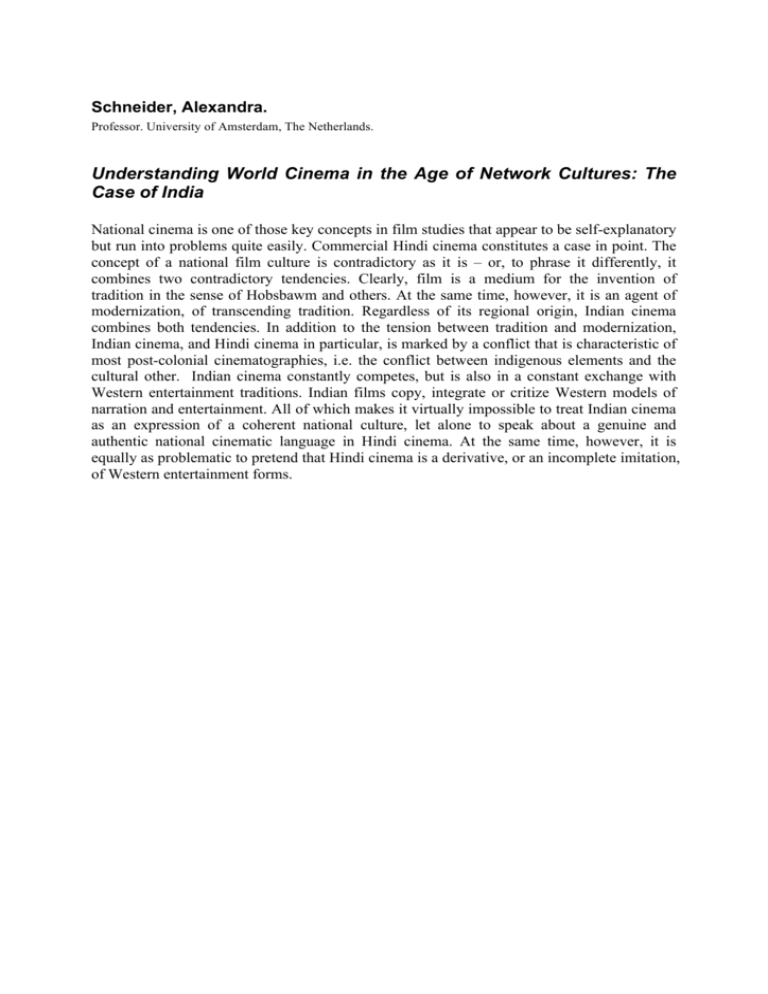
Schneider, Alexandra. Professor. University of Amsterdam, The Netherlands. Understanding World Cinema in the Age of Network Cultures: The Case of India National cinema is one of those key concepts in film studies that appear to be self-explanatory but run into problems quite easily. Commercial Hindi cinema constitutes a case in point. The concept of a national film culture is contradictory as it is – or, to phrase it differently, it combines two contradictory tendencies. Clearly, film is a medium for the invention of tradition in the sense of Hobsbawm and others. At the same time, however, it is an agent of modernization, of transcending tradition. Regardless of its regional origin, Indian cinema combines both tendencies. In addition to the tension between tradition and modernization, Indian cinema, and Hindi cinema in particular, is marked by a conflict that is characteristic of most post-colonial cinematographies, i.e. the conflict between indigenous elements and the cultural other. Indian cinema constantly competes, but is also in a constant exchange with Western entertainment traditions. Indian films copy, integrate or critize Western models of narration and entertainment. All of which makes it virtually impossible to treat Indian cinema as an expression of a coherent national culture, let alone to speak about a genuine and authentic national cinematic language in Hindi cinema. At the same time, however, it is equally as problematic to pretend that Hindi cinema is a derivative, or an incomplete imitation, of Western entertainment forms.
